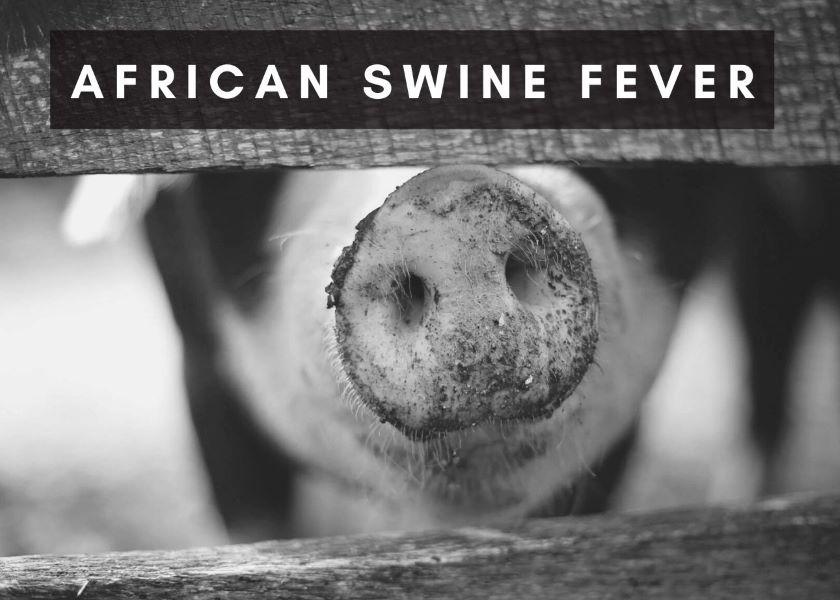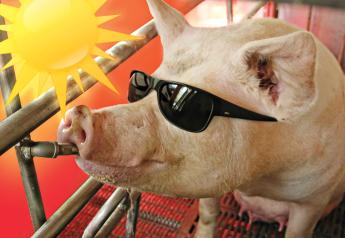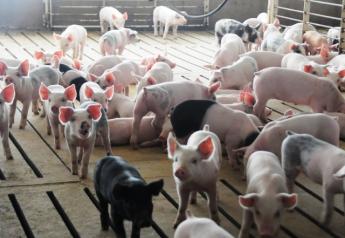Pork Industry Continues 3-Year Fight Against ASF

With African swine fever (ASF) entrenched in China and Southeast Asia, marching westward through Europe and now just 750 miles from Florida, the U.S. pork industry’s decision three years ago to pull out all the stops to prevent the introduction and spread of the pig-only disease into the U.S. seems prescient.
The strategy is simple. We stop ASF from getting in, and if it does, we contain it where it is. The U.S. pork industry and a good chunk of the federal government have been preparing for both since before 2018, when the disease hit China.
ASF Surveillance
The pork industry’s latest efforts, in cooperation with the USDA and U.S. Customs and Border Protection (CBP), have come in response to detection of ASF in the Dominican Republic. USDA in late July confirmed the first case of the highly contagious and highly transmissible disease – which is no threat to human health or food safety – in the Western Hemisphere in more than 40 years.
The Agriculture Department is providing ASF testing support to the Dominican Republic, setting up laboratory equipment, training laboratory personnel, providing personal protective equipment and offering aid on response and mitigation measures.
Additionally, the agency is offering surveillance and testing assistance to Haiti, which borders the Dominican Republic. The pork industry reached out to the U.S. State Department to ensure appropriate ASF-prevention protocols, such as disinfecting shoes, are followed by American earthquake relief workers travelling to and from Haiti – the country was hit by a 7.2 magnitude earthquake in mid-August. The industry also asked it to remind travelers that it is illegal to transport specialty meat products and other agriculture products to the U.S.
To contain the outbreak to the Dominican Republic, USDA asked the World Organization for Animal Health (OIE) in August to recognize Puerto Rico and the U.S. Virgin Islands as a “protection zone,” a classification that allows the U.S. to maintain its current animal health status should a case of ASF be detected on either U.S. territory. Such an OIE designation is critical because it would let the U.S., as an ASF-free country, to continue exporting pork.
USDA and the CBP have taken steps to check the spread of ASF to Puerto Rico and the Virgin Islands, including increasing efforts to intercept illegal boat traffic from the Dominican Republic and Haiti to the islands and conducting thorough inspections of legal boat and air traffic. They also have prioritized depopulating urban feral pigs in Puerto Rico and establishing an ASF surveillance lab in the country.
Best Line of Defense
Of course, the best line of defense in this country should ASF reach the mainland is individual pork producers. There are some fairly simple things producers can do to protect their animals and prevent the spread of the disease, including using caution when hosting on-farm visitors from ASF-positive regions of the world; reviewing biosecurity protocols to ensure consistent use of safeguards; enrolling in the Secure Pork Supply program, a collaboration among the pork industry, the federal and state governments and Iowa State University and the University of Minnesota; and discussing with suppliers the origin of feed ingredients.
I deal with a lot of issues for the pork industry, but ASF has been way more than a full-time job the past few years. It’s a serious disease, with serious consequences for pork producers, so we’re doing everything we can to protect them.
For additional information on ASF biosecurity, please visit www.nppc.org/asf.
Read more from Farm Journal's PORK:
Close All the Windows to Keep ASF Out
ASF in the Western Hemisphere: What’s Different 40 Years Later?
It's Time to Batten Down the Hatches, Pork Industry Experts Say
Learn more about what the industry is doing to prevent ASF from entering the country.







